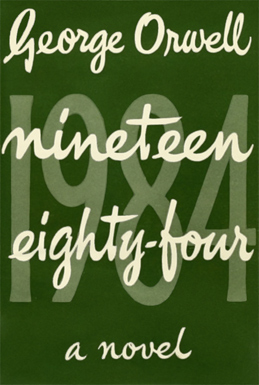
Courtesy of wikipedia.com
It’s uncivil of me, I suppose, to pick another quarrel with Amazon. After all, for the past week, the company has been running ads for my book, Heart Land, without a request or payment from me. In fact, that they’re running the ad in tandem The Ninth Hour is flattering. Of course, the two books don’t compare. Heart Land is funnier than one about murderous nuns.
What isn’t funny is Amazon’s fake book problem. Now that people can self-publish without permission from the New York critics, the truly creative and larcenous have decided to reinvent their brands. They do so by changing a word or two in a classic title, like Geoge Orwell’s 1984, then claiming its authorship. If the trend continues, the market will be flooded with versions of Hamlet from people named Fanny Copperfield, Zany Liechenstienenhammer or Bill Smith.
Worse, some of these nobodies with writer’s envy have dared to “improve” the text. That’s right. They change words, block out passages… In a way, I can sympathize with them. I’d like to delete extraneous pages from the works of Donna Tart. But wanting to improve the classics is not only hubris but if carried out, becomes a crime. Didn’t these fake authors have English teachers who taught them words like plagiarism and copyright?
Amazon is aware of the problem and insists it is trying to fix it. Again, I sympathize. Monitoring thousands of self-published books is a huge task. But surely, Moby Dick by Matilda Cornflower should raise a question. Of course, Amazon has no incentive to be vigilant. Fake or not, a sale is a sale.
Maybe I should stop being a fuddy-duddy and follow the trend. There is one popular book the passages of which I’d love to alter. How does The Bible by Caroline Miller sound?
